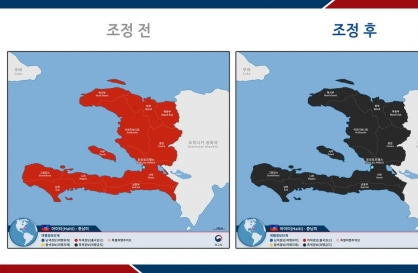MEXICO CITY (AP) ― A new study of the Monarch butterflies’ winter nesting grounds in central Mexico says small-scale logging is worse than previously thought and may be contributing to threats facing the Monarch’s singular migration pattern.
The reserve’s 13,550-hectare core zone lost 16.6 hectares of pine and fir trees so far in 2013, about half of that because of illegal logging, said the study by Omar Vidal, head of Mexico’s chapter of the World Wildlife Fund, the WWF, and other authors.
The rest of the loss was due to drought or disease-control removal of trees. Mexico’s government has taken a strict stance to protect the Monarch grounds in recent years, shutting down sawmills and going after logging trucks, commercial loggers and their equipment. As a result, the reserve reached a milestone in 2012, when aerial photographs found almost no detectable deforestation due to logging over the previous year.
That finding was welcomed has a sign that officials had reined in tree-cutting, which at its peak in 2005 depleted as many as 461 hectares annually in the reserve.
But the study’s comparative analysis of aerial photos taken more than a decade apart showed that small-scale logging has never gone away. Too minor to detect in year-to-year comparisons, the study found incremental losses by comparing 2001 photographs, from the first systematic aerial survey, to ones from 2011.
“Small-scale logging is a serious and growing concern for the conservation of the monarch sanctuaries,” the report said.
It attributed nearly half of the total logging loss in 2012, about 4 hectares, to small-scale logging, often by residents of mountain villages going out to get firewood or to cut beams and boards for building purposes.
Some 27,000 people live in the small agrarian communities that dot, and in many cases own, the land in the reserve. While commercial loggers can be caught and prosecuted, dealing with local impoverished residents who use or occasionally sell wood from their lands may be much tougher to combat.
The reserve’s 13,550-hectare core zone lost 16.6 hectares of pine and fir trees so far in 2013, about half of that because of illegal logging, said the study by Omar Vidal, head of Mexico’s chapter of the World Wildlife Fund, the WWF, and other authors.
The rest of the loss was due to drought or disease-control removal of trees. Mexico’s government has taken a strict stance to protect the Monarch grounds in recent years, shutting down sawmills and going after logging trucks, commercial loggers and their equipment. As a result, the reserve reached a milestone in 2012, when aerial photographs found almost no detectable deforestation due to logging over the previous year.
That finding was welcomed has a sign that officials had reined in tree-cutting, which at its peak in 2005 depleted as many as 461 hectares annually in the reserve.
But the study’s comparative analysis of aerial photos taken more than a decade apart showed that small-scale logging has never gone away. Too minor to detect in year-to-year comparisons, the study found incremental losses by comparing 2001 photographs, from the first systematic aerial survey, to ones from 2011.
“Small-scale logging is a serious and growing concern for the conservation of the monarch sanctuaries,” the report said.
It attributed nearly half of the total logging loss in 2012, about 4 hectares, to small-scale logging, often by residents of mountain villages going out to get firewood or to cut beams and boards for building purposes.
Some 27,000 people live in the small agrarian communities that dot, and in many cases own, the land in the reserve. While commercial loggers can be caught and prosecuted, dealing with local impoverished residents who use or occasionally sell wood from their lands may be much tougher to combat.
-
Articles by Korea Herald



















